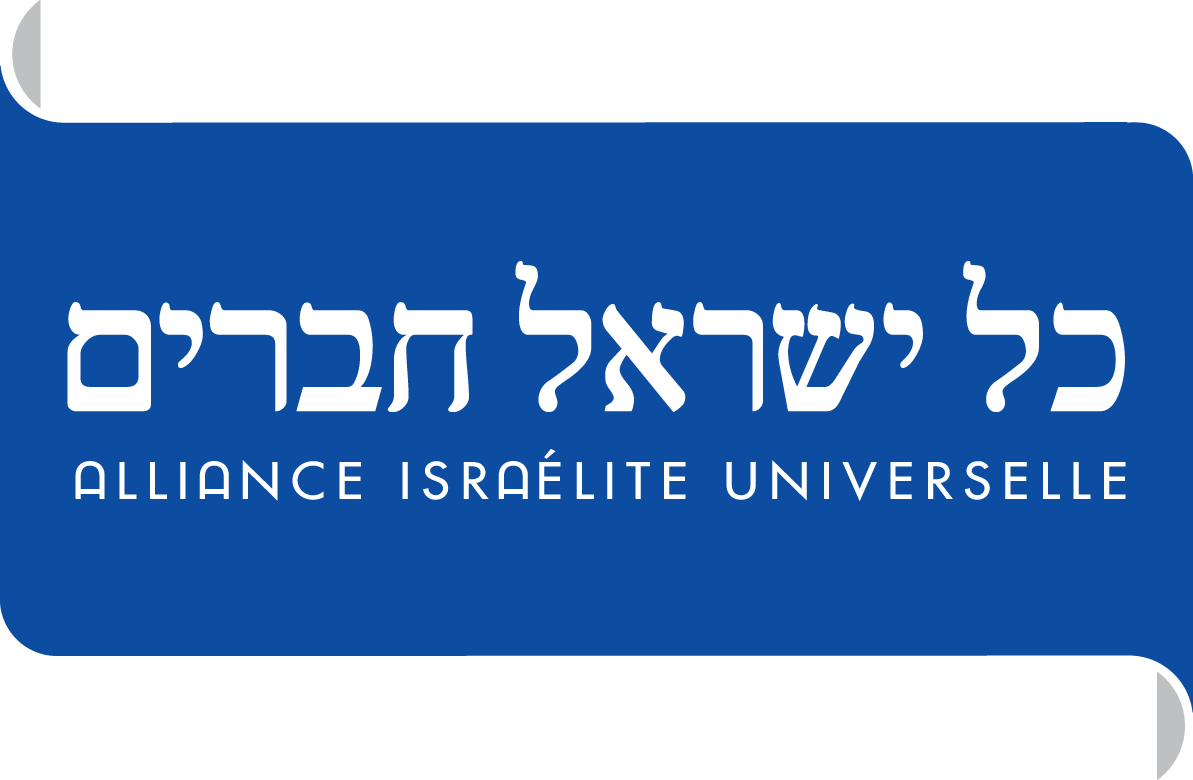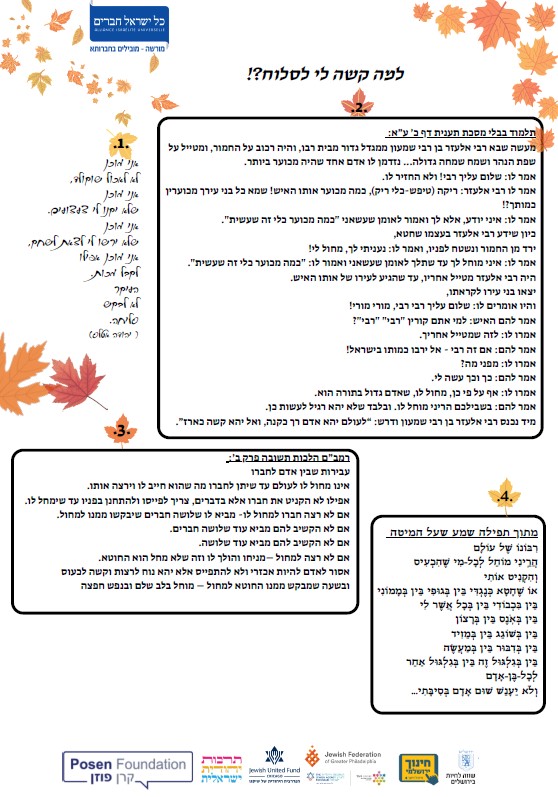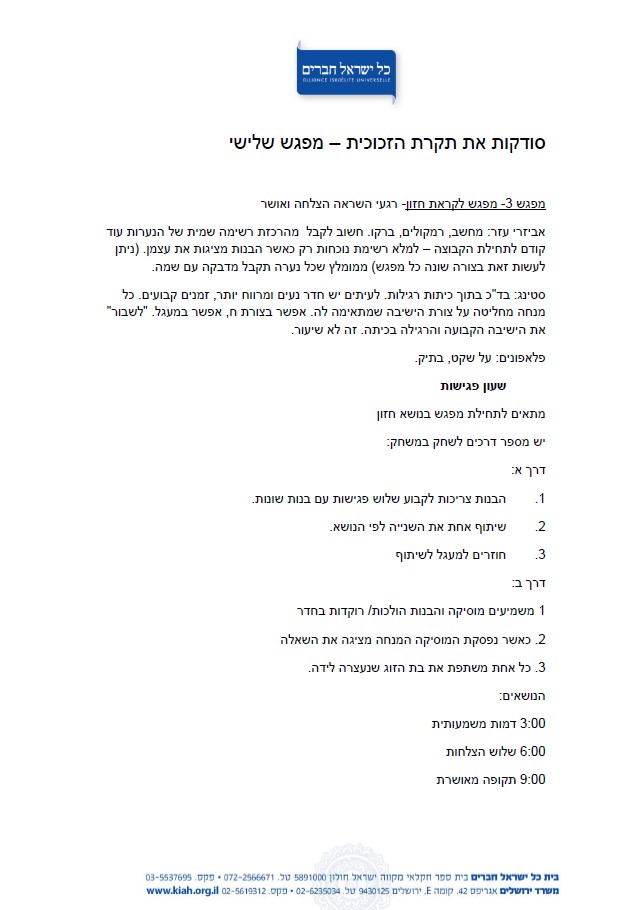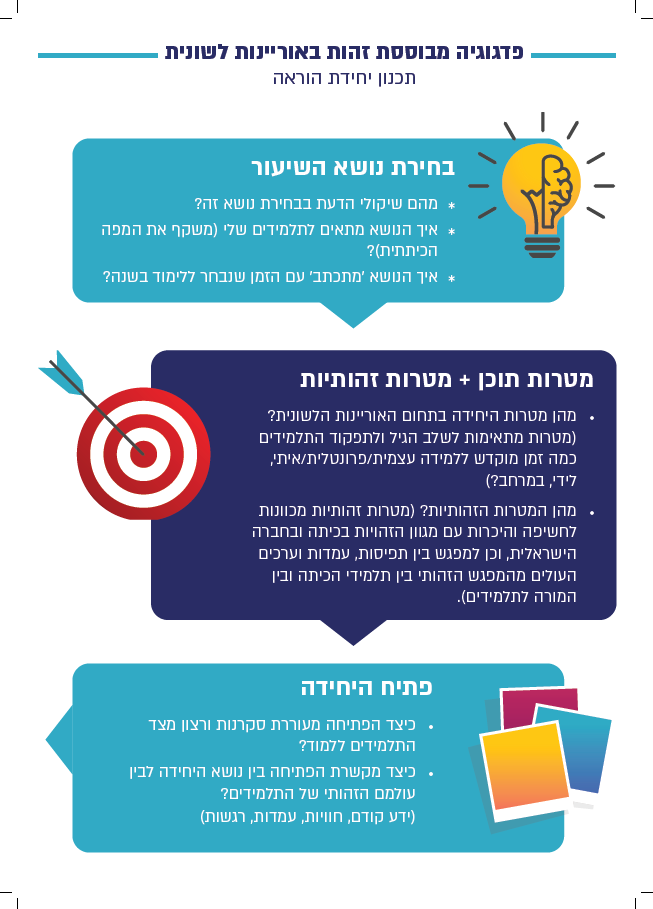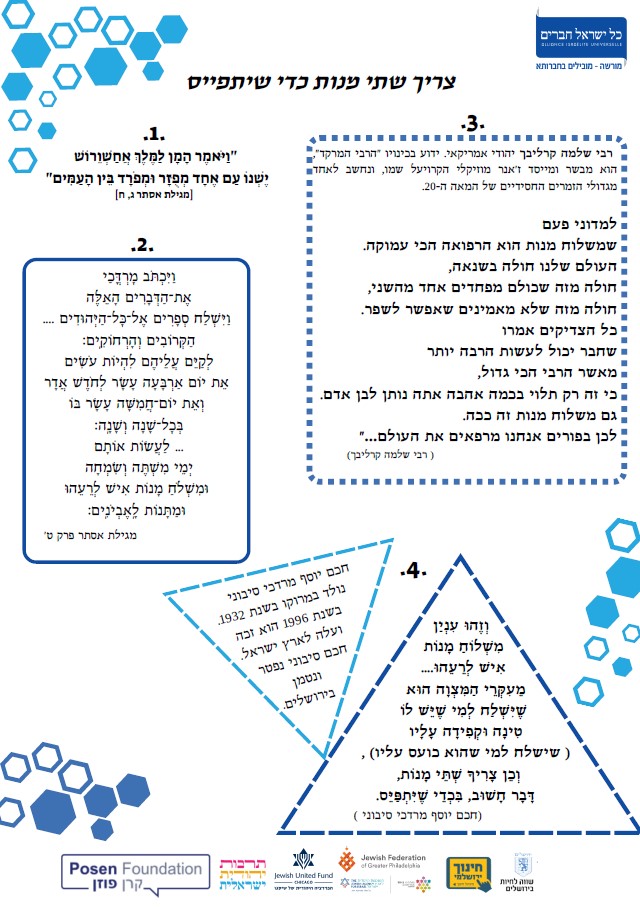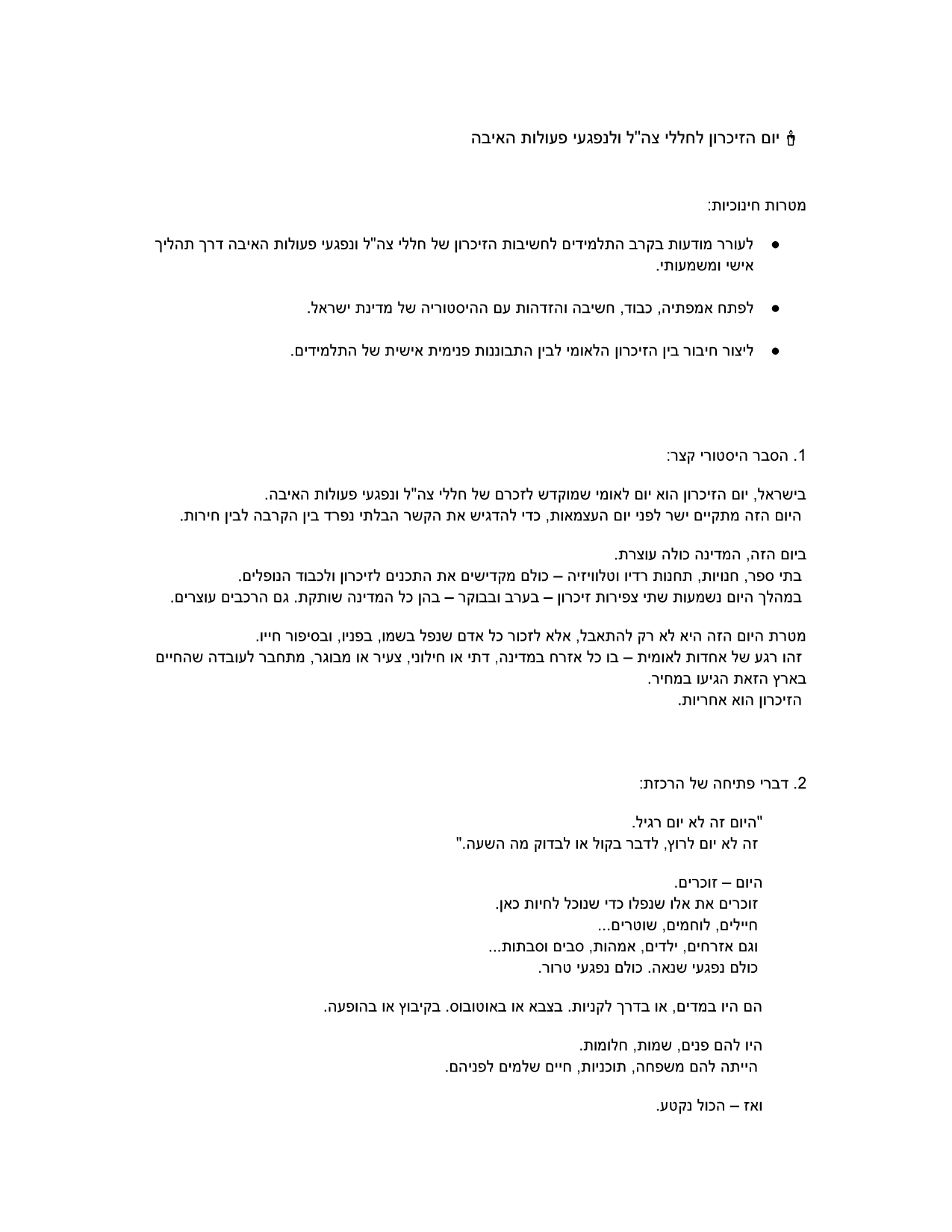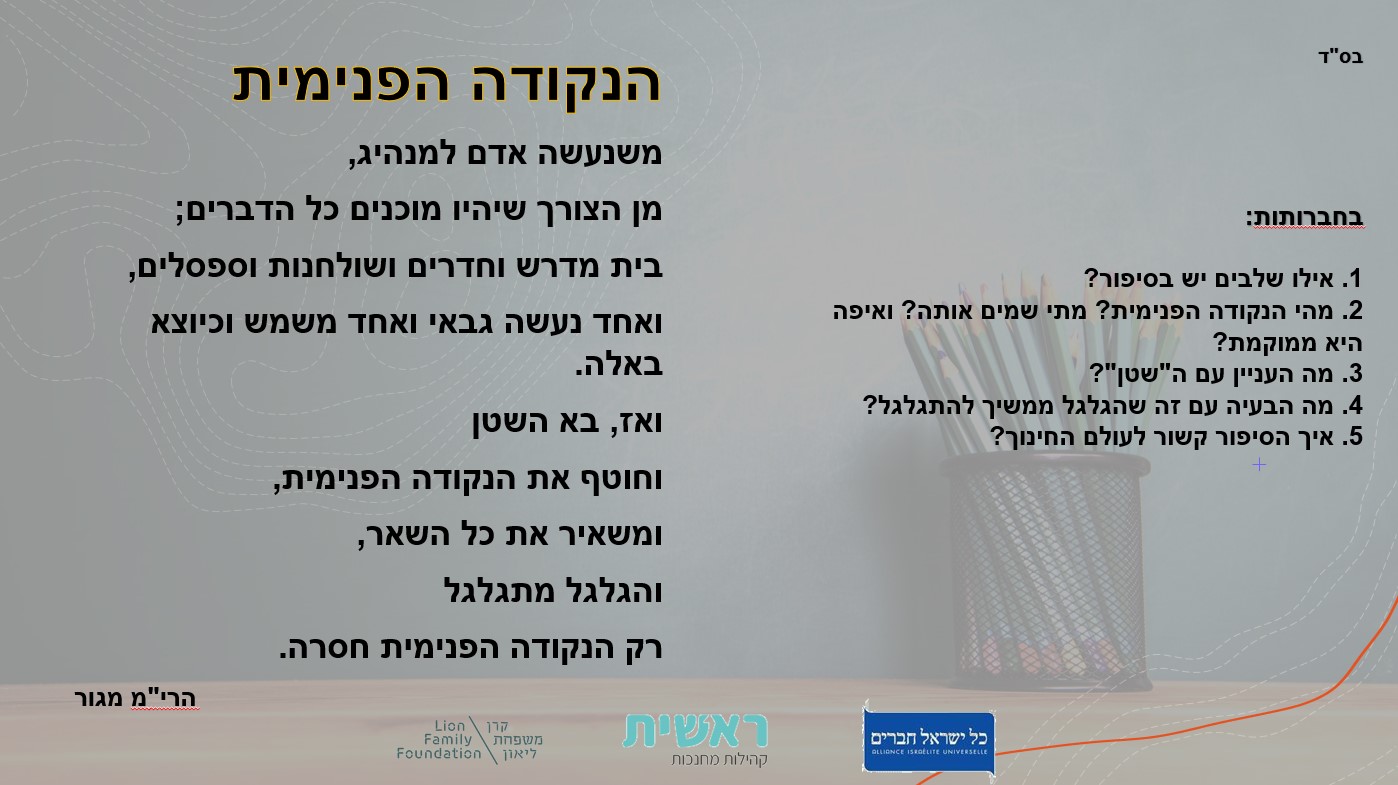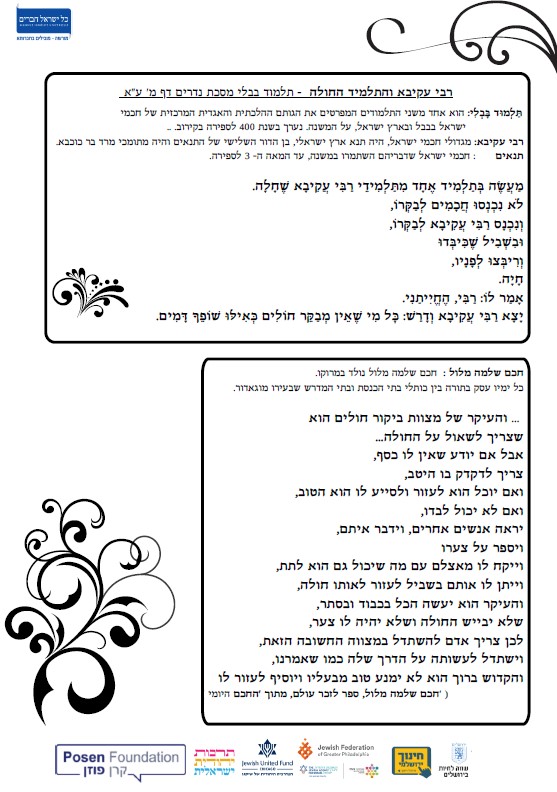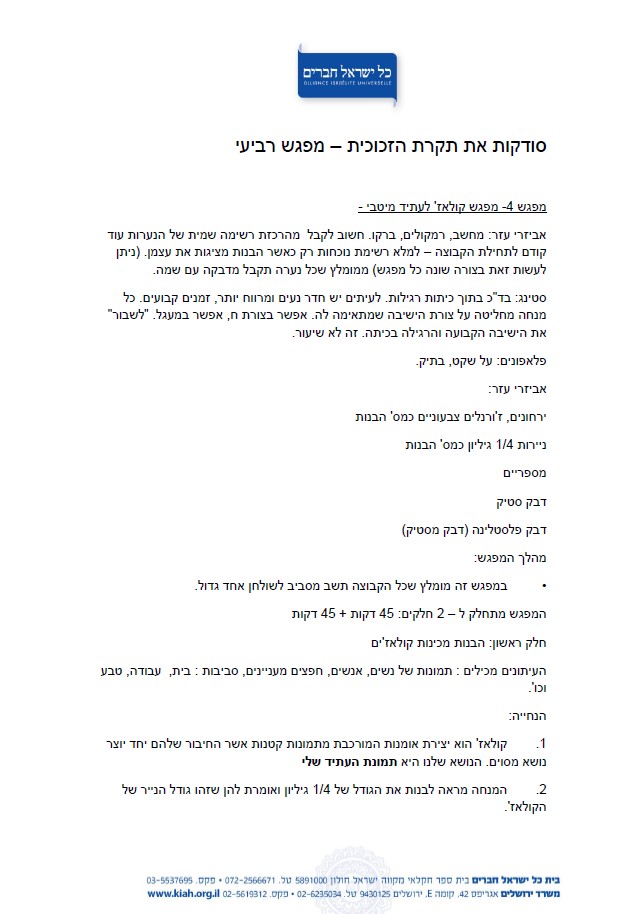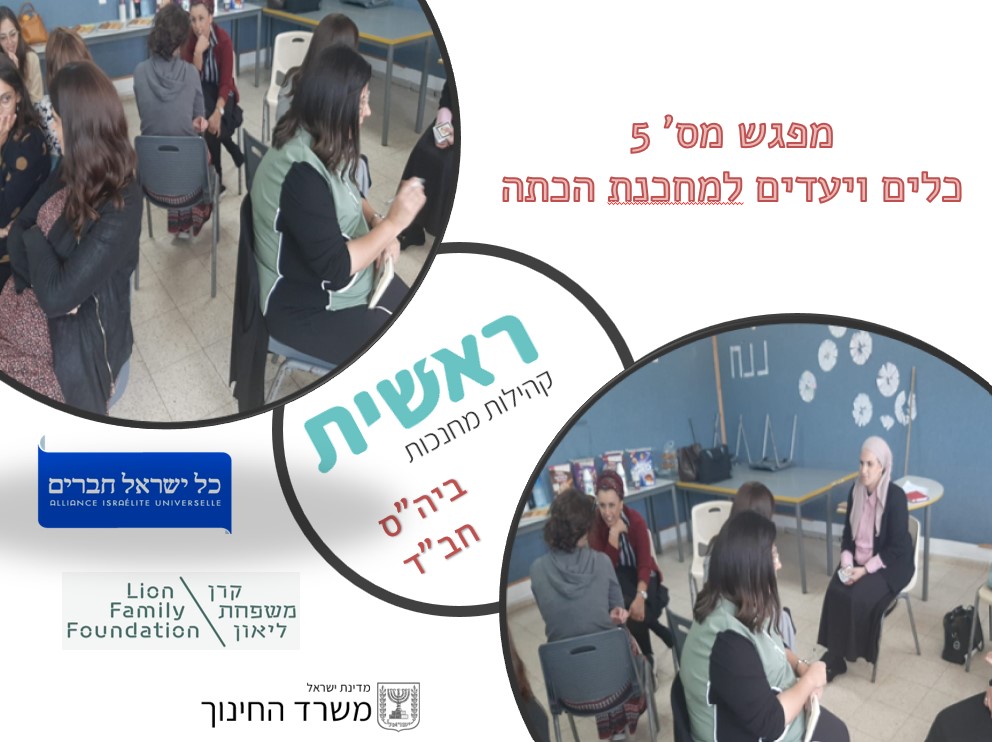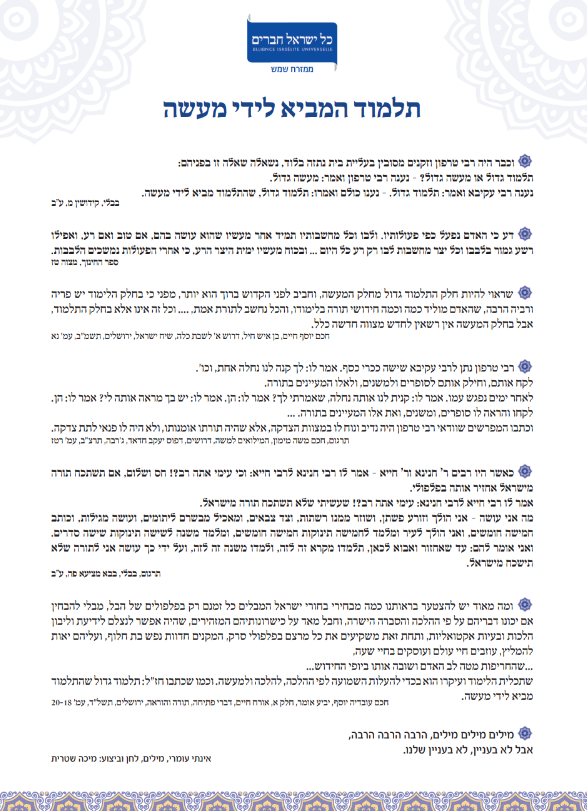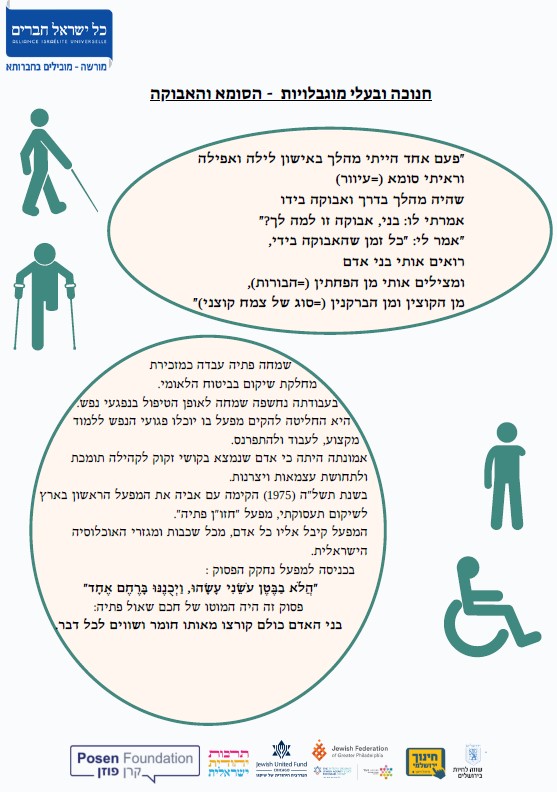Facilitators and coordinators
Sort by topic
Tishrei Holidays – Why is it hard for me to forgive?
Lesson plan
Designed for:
Middle school, high school
- carrier: Morasha
An activity set with presentations, flashcards, and study segments on the topic of forgiveness. Around the Ten Days of Repentance, the activity deals with our ability to forgive others, maintain relationships with our friends, and resolve issues between people.
Moments of Success and Inspiration Workshop
Lesson plan
Designed for:
Upper division
- carrier: Sodkot
A lesson plan on moments of success and inspiration.
Linguistic literacy indicator
activation
Designed for:
Teachers
- carrier: Mesharim
Identity-based pedagogy indicator in linguistic literacy
Purim
Lesson plan
Designed for:
Middle school, high school
- carrier: Morasha
Activities around the days of Purim on the subject of charity, sending meals and gifts to the poor. A variety of aids, discussion cards, study and reflection sections.
Asking questions
Lesson plan
Designed for:
Teachers
- carrier: Gateway to Graduation
Activity presentation and worksheet for a workshop on asking questions. The skill of asking questions is important for dealing with challenges, strengthening the identity component, and encouraging excellence among students and staff.
Activities for IDF Martyrs' Memorial Day
Lesson plan
Designed for:
Middle school, seminaries
- carrier: Israeli Jewry, leaf
An activity set for IDF Martyrs' Memorial Day. The activity is intended for students immigrating from France. The set includes an opening activity, a study section, and questions for discussion. In addition, you can find ideas for community or school activities on the subject.
My inner point as an educator
Teacher training
Designed for:
Teachers
- carrier: Reshit
The question of why I do what I do? Or rather, answering this question is a necessary step in any process we seek to carry out. We will address the question of 'why?' From there to 'what?' and only finally the 'how.' After that, we will examine what we would like to accomplish as educators.
IDF Wounded Soldiers' Appreciation Day – Rabbi Akiva and the Sick Student
Lesson plan
Designed for:
Middle school, high school
- carrier: Morasha
Around the Day of Appreciation for the IDF Wounded, a learning and discussion activity on the subject of visiting patients and how it contributes to both social ties and the mental and physical condition of the patients.
Future Picture Meeting
Lesson plan
Designed for:
Upper division
- carrier: Sodkot
Lesson plan on the topic of an optimal future picture.
Setting personal goals for the classroom teacher
Teacher training
Designed for:
Teachers
- carrier: Reshit
The goals of the meeting are to focus on goals, to become familiar with practices, and to acquire practical tools to achieve the goals. This meeting will deal with setting goals for each classroom teacher for her own classroom. We will do this using projective tools from the world of visual images. At the beginning of the meeting, we will get into the atmosphere by choosing a tool from a tool sheet that the teacher feels she needs for the coming week in her classroom and explain why – this is how we get into the subject, it will be both a little funny and a little liberating. After that, we will really dive in with the help of drawing to define the personal goals of each classroom teacher for her classroom. And finally, we will get to know the practices that Keren Leon, the head of the primary program, defines for classroom teachers and discuss them.
Talmud that leads to action
Lesson plan
Designed for:
Seminaries, communities
- carrier: Memizrach Shemesh
The Jewish tradition places Torah study and Torah observance as its central values. Study and action are perceived as being in conflict with each other, and investing in one comes at the expense of investing in the other. This perception leads to the question of which is greater, Talmud or action? and pushes for a decision on this question. Deciding on this question may be expressed in investing greater time, energy, and resources, but it mainly affects the hierarchy that is created between Talmud and action. Creating a hierarchy between the two may also create a hierarchy between people who engage in study and those who engage in action, and exclude certain people from study and other people from action. Blurring the dichotomy between study and action and identifying learning processes that involve action and actions that involve Torah study makes it possible to expand the circles of study and action to different groups in the population and reduce social exclusion from one of these circles in order to continue their centrality in the Jewish tradition alongside each other.
Disability Equality Day
Lesson plan
Designed for:
Middle school, high school
- carrier: Morasha
Activities around Disability Equality Day, on the topic of responsibility and awareness of the connection between people with and without disabilities.
